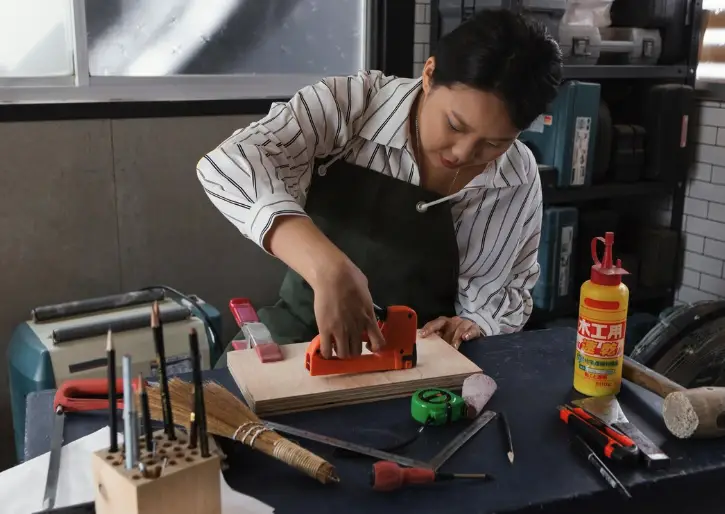Expanding Your DIY Skills

Expanding your DIY (Do It Yourself) skills can be a rewarding and empowering endeavor, allowing you to tackle a variety of projects around your home. Whether you want to save money, customize your living space, or simply enjoy the satisfaction of creating something with your own hands, improving your DIY abilities opens up a world of possibilities. Here are several key areas to focus on and tips to help you expand your DIY skills effectively.
1. Start with the Basics
Understanding Tools and Materials:
- Familiarize yourself with common tools such as hammers, screwdrivers, drills, saws, and wrenches. Learn how to use them safely and effectively.
- Gain knowledge about different materials like wood, metal, plastic, and various types of adhesives and fasteners. Understanding the properties and best uses of these materials is crucial for successful projects.
Safety First:
- Always prioritize safety by wearing appropriate protective gear such as gloves, goggles, and masks.
- Learn the proper use of safety equipment and make sure your workspace is well-lit and organized to prevent accidents.
2. Take on Small Projects
Practice with Simple Tasks:
- Start with manageable projects that match your current skill level. Tasks like assembling furniture, hanging shelves, or painting a room can build your confidence and foundational skills.
Learn from Mistakes:
- Don’t be discouraged by mistakes. Each error is an opportunity to learn and improve. Analyze what went wrong and how you can avoid similar issues in the future.
3. Educate Yourself
Online Resources:
- Utilize the vast array of online tutorials, videos, and blogs dedicated to DIY projects. Websites like YouTube, Pinterest, and DIY-focused forums are excellent sources of information and inspiration.
Books and Magazines:
- Invest in some good DIY books or subscribe to magazines that provide detailed instructions, tips, and project ideas. These resources can be invaluable for both beginners and advanced DIY enthusiasts.
4. Expand Your Skill Set
Try Different Types of Projects:
- Don’t limit yourself to one type of DIY work. Explore various areas such as woodworking, plumbing, electrical work, and crafting. This diversification will make you more versatile and capable of handling a wider range of tasks.
Attend Workshops and Classes:
- Look for local workshops or community classes that offer hands-on training in different DIY skills. These classes often provide valuable insights and direct guidance from experienced professionals.
5. Invest in Quality Tools
Build a Comprehensive Tool Kit:
- As you expand your skills, gradually invest in quality tools. A well-equipped tool kit makes projects easier and more efficient, and good tools tend to last longer and perform better. You can head to wholesalers like powerpointelectrics.co.uk to look for supplies that you might need for your projects.
Learn Tool Maintenance:
- Properly maintain your tools to ensure they remain in good working condition. Regular cleaning, sharpening, and appropriate storage will extend their lifespan and effectiveness.
6. Plan and Prepare
Detailed Planning:
- Plan your projects meticulously. Measure accurately, make detailed sketches or plans, and list all necessary materials before starting. Good planning can save time and reduce mistakes.
Gather Materials:
- Collect all the materials you’ll need before beginning a project. Having everything at hand prevents interruptions and helps maintain focus and momentum.
7. Network and Collaborate
Join DIY Communities:
- Engage with local or online DIY communities to share ideas, seek advice, and learn from others’ experiences. These communities can offer support, motivation, and valuable feedback.
Collaborate with Friends and Family:
- Working on projects with friends or family members can make DIY tasks more enjoyable and provide opportunities to learn from each other.
8. Stay Inspired and Persistent
Set Realistic Goals:
- Set achievable goals for your projects. Celebrate small victories and gradually take on more complex challenges as your skills improve.
Stay Inspired:
- Continuously seek inspiration by visiting home improvement stores, reading design blogs, or following DIY influencers on social media. Inspiration keeps your creativity flowing and your interest piqued.
Be Persistent:
- Persistence is key in DIY. Some projects may not go as planned, but sticking with them and learning from each experience will lead to improvement and success over time.
Conclusion
Expanding your DIY skills requires a combination of education, practice, and perseverance. The satisfaction of completing DIY projects, combined with the practical benefits and cost savings, makes the effort worthwhile. Whether you’re fixing up your home, creating personalized gifts, or simply enjoying a new hobby, improving your DIY skills is a fulfilling journey that can last a lifetime.
